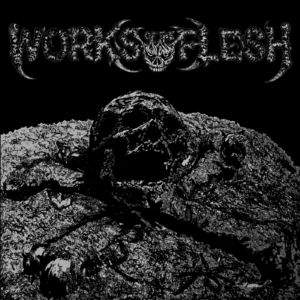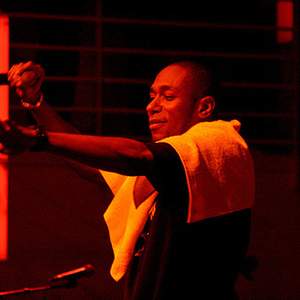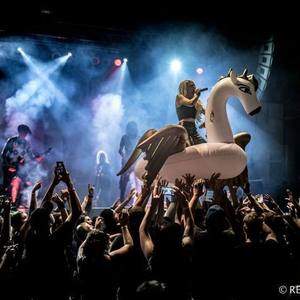Bastille Tour 2025
November 14, 2025 -
The Bastille tickets are already available!
Every fan will get a chance to experience the amazing performance of their favorite musician. This is going to be the most interesting tour of the year by far, and this is the best place to get your tickets right now. Take the front row seat and enjoy the perfection of sound.
The music event that is going to shook everybody this year is definitely the new Bastille tour. The Bastille tickets are being sold out at a lightning speed but there’s still a chance to book the spots for an amazing price! Every concert sees a huge number of fans gather around the stage in anticipation of a wonderful experience. Huge stages all around the world are set to host these incredible live shows. Our service is also offering Bastille VIP packages for dedicated fans.
We are making sure to keep our tickets within the affordable price range while providing you with updated information on everything that’s happening in the music industry. You can also choose tickets based on your seat preferences. With us it is much easier to follow the Bastille schedule and see where the next concert will take place. You can book your tickets in advance and secure the lowest price.
A live concert of your favorite band is a special event that cannot be experienced anywhere else. The quality and energy of such events cannot be translated through a TV screen. This has to be experienced at least once and then you will understand why events like these happen everywhere. Simply check the concert’s details and see whether that’s exactly what you have been looking for.
Simply check the dates for the performance at your hometown and book your tickets because they get sold out really quick! Getting your tickets in advance is always cheaper and more convenient and with us you will get your tickets for the Bastille 2025 tour very quickly!
Bastille Tickets 2025 - 2026
Bastille VIP Packages 2025/2026


About Bastille
The Bastille (, French: (![]() listen)) was a fortress in Paris, known formally as the Bastille Saint-Antoine. It played an important role in the internal conflicts of France and for most of its history was used as a state prison by the kings of France. It was stormed by a crowd on 14 July 1789, in the French Revolution, becoming an important symbol for the French Republican movement. It was later demolished and replaced by the Place de la Bastille.
listen)) was a fortress in Paris, known formally as the Bastille Saint-Antoine. It played an important role in the internal conflicts of France and for most of its history was used as a state prison by the kings of France. It was stormed by a crowd on 14 July 1789, in the French Revolution, becoming an important symbol for the French Republican movement. It was later demolished and replaced by the Place de la Bastille.
The Bastille was built to defend the eastern approach to the city of Paris from potential English attacks during the Hundred Years' War. Construction was underway in 1357, but the main construction occurred from 1370 onwards, creating a strong fortress with eight towers that protected the strategic gateway of the Porte Saint-Antoine on the eastern edge of Paris. The innovative design proved influential in both France and England and was widely copied. The Bastille figured prominently in France's domestic conflicts, including the fighting between the rival factions of the Burgundians and the Armagnacs in the 15th century, and the Wars of Religion in the 16th. The fortress was declared a state prison in 1417; this role was expanded first under the English occupiers of the 1420s and 1430s, and then under Louis XI in the 1460s. The defences of the Bastille were fortified in response to the English and Imperial threat during the 1550s, with a bastion constructed to the east of the fortress. The Bastille played a key role in the rebellion of the Fronde and the battle of the faubourg Saint-Antoine, which was fought beneath its walls in 1652.
Louis XIV used the Bastille as a prison for upper-class members of French society who had opposed or angered him including, after the revocation of the Edict of Nantes, French Protestants. From 1659 onwards, the Bastille functioned primarily as a state penitentiary; by 1789, 5,279 prisoners had passed through its gates. Under Louis XV and XVI, the Bastille was used to detain prisoners from more varied backgrounds, and to support the operations of the Parisian police, especially in enforcing government censorship of the printed media. Although inmates were kept in relatively good conditions, criticism of the Bastille grew during the 18th century, fueled by autobiographies written by former prisoners. Reforms were implemented and prisoner numbers were considerably reduced. In 1789, the royal government's financial crisis and the formation of the National Assembly gave rise to a swelling of republican sentiments among city-dwellers. On July 14, the Bastille was stormed by a revolutionary crowd, primarily residents of the faubourg Saint-Antoine who sought to commandeer the valuable gunpowder held within the fortress. Seven remaining prisoners were found and released and the Bastille's governor, Bernard-René de Launay, was killed by the crowd. The Bastille was demolished by order of the Committee of the Hôtel de Ville. Souvenirs of the fortress were transported around France and displayed as icons of the overthrow of despotism. Over the next century, the site and historical legacy of the Bastille featured prominently in French revolutions, political protests and popular fiction, and it remained an important symbol for the French Republican movement.
Almost nothing is left of the Bastille, except some remains of its stone foundation that were relocated to the side of Boulevard Henri IV. Historians were critical of the Bastille in the early 19th century, and believe the fortress to have been a relatively well-administered institution, but deeply implicated in the system of French policing and political control during the 18th century.














